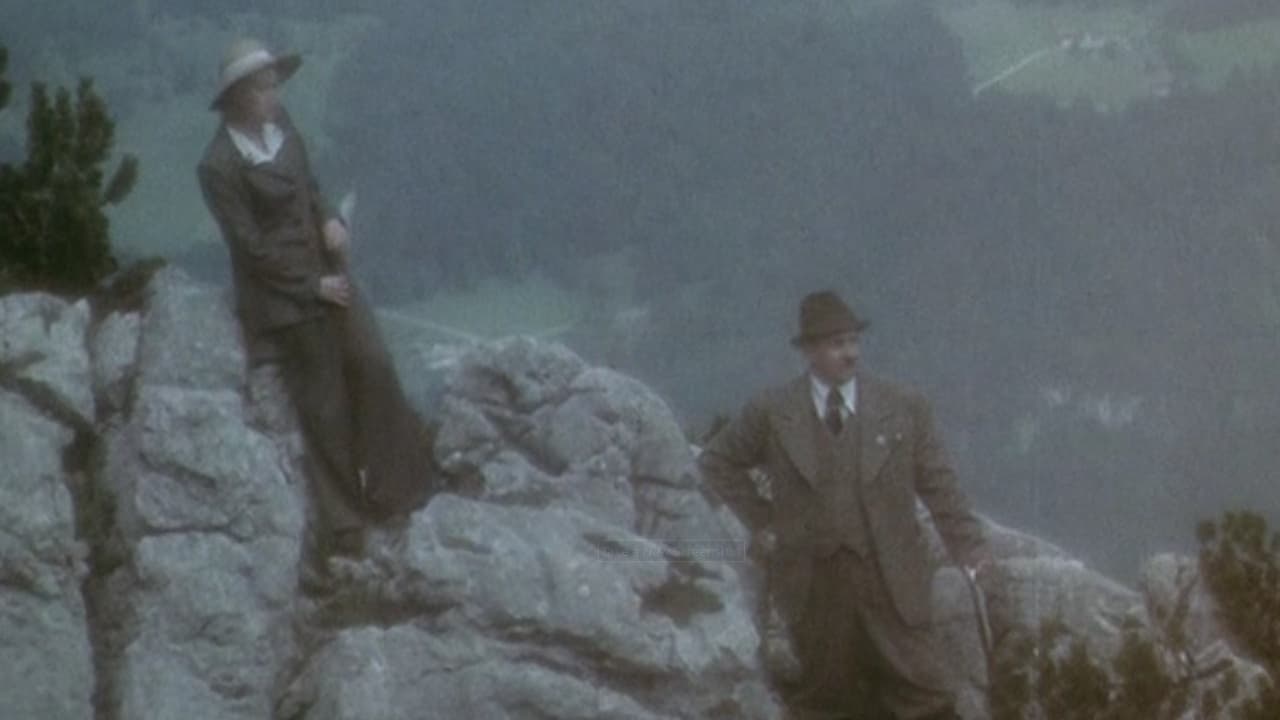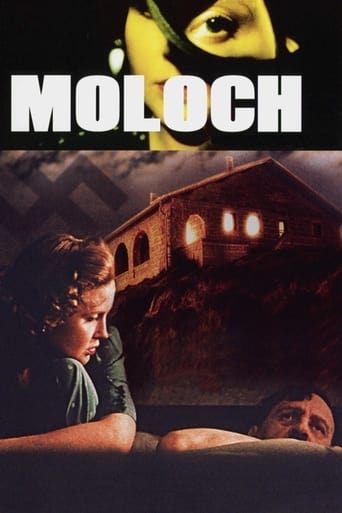TrueJoshNight
Truly Dreadful Film
AniInterview
Sorry, this movie sucks
Titreenp
SERIOUSLY. This is what the crap Hollywood still puts out?
Lollivan
It's the kind of movie you'll want to see a second time with someone who hasn't seen it yet, to remember what it was like to watch it for the first time.
ffym
I showed it to students and even they, young American teenagers did not find it slow or boring. I just hate this word applied to films 'slow'. What does it suppose to mean? The film is not long, I did not notice the passage of time. It is a very subtle but unforgettable encounter with Hitler when you actually feel like you met not only him but also his entourage, that you met them personally and, man, what an experience it is! This film avoids all blaming, categorization, any simplification as well because this kind of 'Hitlers' are well known through other films. There is no interest to do the same. This is different, new, original. Not for everyone, yes. Thanks God.
museumofdave
This is not a film one "likes" in the ordinary sense that one might like, say "The Sound of Music." It is, however a film that could be admired for it's intention and for much of it's execution. I admired much of what the director was attempting, an unconventional look at Hitler's private life as an isolated, paranoid, lonely, often clueless individual who cannot connect with any kind of reality, but is still loved for himself by Eva.Moloch is a curious, slow-moving construct, and is, in someways, about the disconnect between those who have power and those who depend upon them: the opening, featuring a nude Eva Braun dancing faun-like on some stone battlements in the fog, is odd and fascinating; what follows no less so, a sort of Fantasia On The Mad Dictator; the film is a curiosity.Just it is difficult to nail down the character of W. C. Fields in a film, or Clark Gable, or Charlie Chaplin, it is always difficult to recreate the 20th Century's most notable villain, Adolph Hitler. Many from Alec Guinness and Anthony Hopkins to Richard Basehart have tried, but Bruno Ganz in Downfall offers the unimpeachable impersonation--but Downfall a different kind of film. Like the kinky film "Even Dwarfs Started Small," Moloch is an oddity, fascinating to some history or film fans, exasperating for most mainstream audiences.
legspinner
Honestly, I don't know what all the fuss is about when people say this is a boring and pretentious film. Yes, this is an art-house flick. It's beautiful purpose is to make you think in many different ways and about many different aspects of Nazism; for instance, look how the throng assembles like one of Rembrandt's paintings of the ruling council when 'Adi' slumps into the chair. A very telling reference out - but this film doesn't restrict its references to 'highbrow' themes. In its stylised portrayal of Goebbels and Bormann it manages to suggest the stereotypes of American cinema, which is meant to generate insights into how to view this centre of evil. As the synopsis says, Hitler et al have come to Berchtesgaden for R & R, right? Not much fun, is it? At the centre of this empire, there is simply a void of yes-men who cannot relax in each other's company, who cannot even break out the wine until der Fuhrer has gone to bed, and who for whom every day is an exercise in the most intense nervousness *with no way out except through der Fuhrer's whimsical violent rage.* This movie is one of the driest I've come across. If Mel Brooks was the slapstick Nazis, this is Nazis as 'Big Brother' contestants. So underplayed, it's not exactly surprising many people complain there's nothing going on here - but then, the evil of the Nazis is a strange and unwanted gift for artists and filmmakers who want to get as damn near to Eliot's 'Objective Correlative' as possible, so they can play with a collective, coherent response. In this case, it begins with, "The Nazis were awful, awful people. When did their punishment happen, eh? How was death truly a punishment for their particular evil?" This movie shows, by making fun of them from several perspectives, exactly what their punishment was. When the film moves into the relationship between AH and EB later on, it is further complicated by the fact that Eva is the only one who has even seen what they are doing. Note the subtlety of the exchange which ends in Adi saying, "That's the right answer," or the weird symbolism of their body language when he finally catches up with her in the bedroom. Sokhurov is not trying to portray realistically what happened; he is using the space of Berchtesgaden as a space for a symbolic expression of what Nazism did to the Nazis themselves. Their hell began when they imposed it on others, and they only discovered it later, by which time, one of them was a doddering old neurotic wreck, another one way out of his depth, and still another one abandoned by his old comrades and desperately trying to curry favour. And the whole thing adds up to something ludicrous. I have read on another critique here, that Hitler was considered to be very boring. Well, he can't have been that boring, if you could provoke him to send you to the Russian front simply by criticising his ambitions - but then, the boredom angle is catered for in the first ten minutes with Eva's listlessness. This film is classic.
taylor9885
Yes, it would be easy to criticize Molokh for being slow, and for having Russian actors mouthing German words that aren't natural to them, but I found this film to be fascinating through most of its length (and if Tarkovsky had made it, it would have been TWICE as long).What we see is Hitler and his inner circle being jovial and vicious by turns, along with loopy discussions of racial characteristics (Czech men have droopy mustaches, indicating moral turpitude; the Finns are rendered mentally unfit owing to cold weather, etc.) There is a lot of backstabbing going on between Bormann and Goebbels; pity that Goering isn't in the film--we would have benefitted even more from his cynicism. All of this has the ring of truth--I recently read Speer's memoirs, Inside the Third Reich, which has detailed accounts of these lunch and dinner talk-fests.Yelena Rufanova is not convincing as Eva Braun--too slavic looking--but Leonid Mozgovoy with his dumpy body is great as Hitler. The hypochondria, the refusal of middle-class pleasures--no slippers!--the insane political musings: it's all here. Leonid Sokol is Goebbels, absolutely. The rat face on a dwarf's body, the desperate ridicule of Bormann whom he knows is cutting him down: this is fine acting.Sokurov adopts Leni Riefenstahl's style to tell a Wagnerian story of grandeur and collapse.

